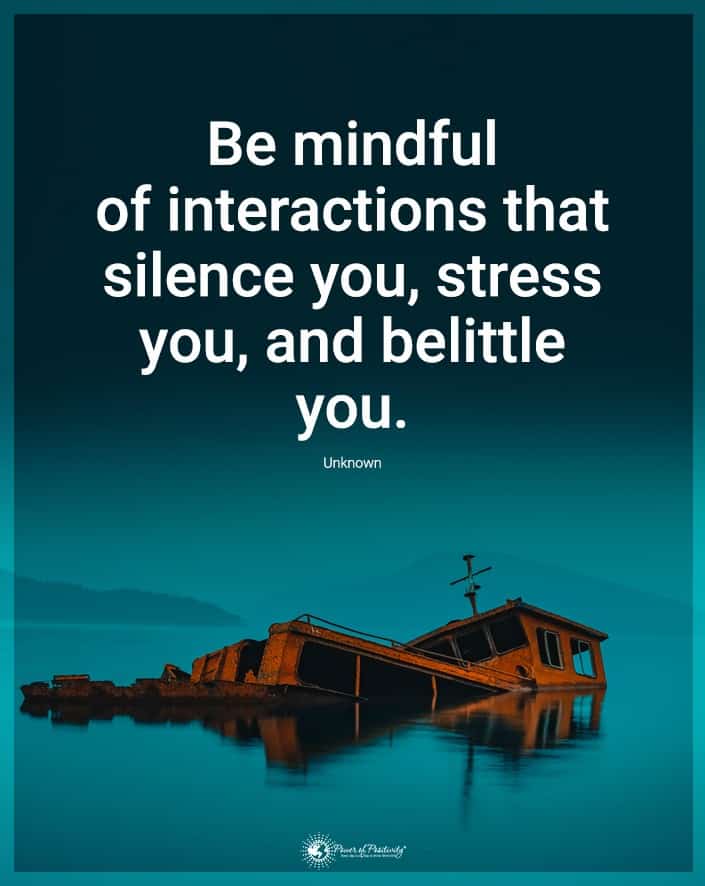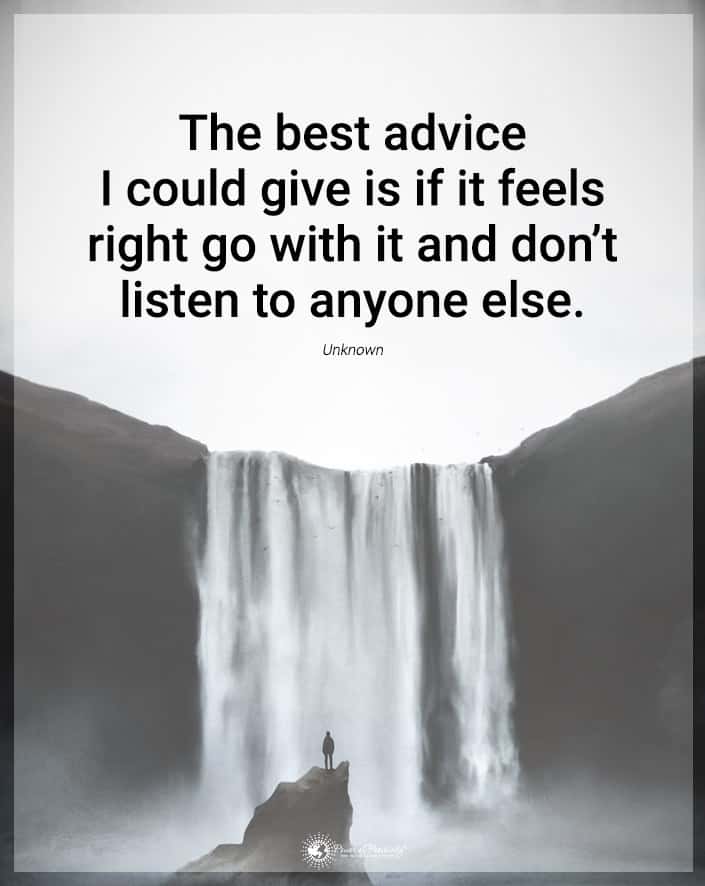Are you constantly juggling different conflicts? Do you feel your life is a giant web of gossip and miscommunication? Do you tiptoe around your friends and family members to avoid drama?
Is your answer to all these questions yes? Then you probably have a life filled with unnecessary drama. Thankfully, your life doesn’t always have to feel like a Broadway production. There are effective ways to weather the storm and reach a calm life.
Why Should You Avoid Drama In Your Life?
We all know someone who “loves drama” because it makes life interesting (or so they say). But you know very well that drama is just a big red flag and not a positive thing.
Drama can be any conflict, from lying to cheating to even worse deeds. Not only that, but it usually circles pointless things, like who hooked up with who.

What Causes Dramatic Outcomes?
According to writer Tara Meyer-Robson, most drama is created by people who feel life is a little too boring and need to spice it up. These people tend to know everything about everyone and freely share someone else’s secrets. They thrive on miscommunication and gossip and always jump at the chance to create an even bigger mess by spreading lies or interfering.
But this is just drama stemming from external sources. In reality, if there’s drama in your life, chances are you are just as much at fault as anyone else. After all, you can’t blame all your issues on externalities. You might be complicit in the drama by being a lousy communicator or a bad listener. Perhaps you also engage in gossip too much. Drama can also flourish when there are unresolved conflicts, there aren’t clear boundaries set in your relationships, or you have problematic interactions with the people in your life.
Thomas Henricks, Ph.D., explains that drama results from people trying to uphold an idealized version of themselves before others. Like in a stage performance, people’s behaviors are performances. Indeed, they strive to impress others and convince them that they are a certain way. They even use “props”: their house looks a certain way, they choose certain clothes, look and smell a certain way, and so on. This leads to a society where lies are at the forefront of every conversation and every interaction. Inevitably, this leads to people burying themselves so deep in the drama that they no longer know how to get out.
Drama is not just a minor inconvenience, though. It can have severe impacts on your mental and physical health. Drama leads to much stress, which is linked with worse health. A prolonged state of stress (like the continuous stress one might feel when in a dramatic situation) leads to overexposure to cortisol and other stress hormones, which can disrupt almost all body processes. This increases the risk of anxiety, depression, headaches, muscle tension and pain, heart problems, high blood pressure, sleep problems, and even weight gain. Not only that, but drama interferes with your relationships with family and friends.
3 Effective Ways To Avoid Drama
So, how can you avoid these issues and live a stress-free and drama-free life?
1. Avoid Drama by Assessing Your Life And Relationships
Do they know I’m the one who spread that rumor about them? How can I hide this lie from my family? These types of questions never leave your mind if your life is filled with drama.
Certain situations you face can make you feel threatened in a life filled with stress and issues. Not being completely honest with the people you love and always being afraid of what secrets of yours might surface are all scary situations.
The best way to deal with them is to assess your life. Do a self-appraisal of what makes you scared and why. Try to process everything until you reach the root of the problem. Maybe it’s the fact that you lied to your closest friend. Perhaps you are being manipulated by someone who can blackmail you. Whatever the reason might be, try to confront it.
Make a list of unresolved issues that stress you out and try to find a solution. If it’s something small like a white lie, then come clean. If it’s something more severe, like gaslighting, manipulation, or blackmail, try to take the legal route or go to a certified counselor to get yourself out of that toxic situation.
Assessing situations is a step, but it’s not enough. It has to be coupled with assessing your relationships. You must understand who you surround yourself with and how that affects you. According to Abigail Brenner, M.D., the neediest people spreading gossip are also the people who will bring unavoidable drama to your life. They are also the people who will drain you emotionally. Their presence leaves you stressed, anxious, and unsatisfied from a social point of view.
To minimize drama, look for the people who are easy to be around, who are not demanding, and who are positive and keep them around. Try to distance yourself from others.
The more toxic situations and people you can eliminate from your life, the less drama you will face and the less stressed you will feel.

2. Set Boundaries In Place to Avoid Drama
You usually face daily drama because people have no idea when they step on your toes. If you don’t decide where and why the limits are, people will never know if they got on your nerves, pushed you too far, or hurt you. And that goes both ways.
Boundaries are basic guidelines people create to establish how others should behave around them. They protect your rights in a relationship.
Not having rules in a relationship can lead to resentment and bottled-up feelings between the parties involved. Bitterness can make even your best friends and family bitter and prone to gossip and lack of communication.
Melissa Coats, a licensed professional counselor, describes boundaries as the rules to ensure a relationship doesn’t become unsafe. She states that boundaries bring us closer and are necessary for every relationship.
Boundaries can be of different types (physical, sexual, intellectual, emotional, and financial) and are unique to the individual (based on one’s beliefs and values). To set them in place, you must understand your values and beliefs, what triggers you, and what you are uncomfortable with. After you construct a set of rules, please share them with those you interact with often.
Not every relationship in your life will have the same set of rules. They might differ depending on whether the relationship is with a friend or family member, how close you are, and so on. Boundaries must be somewhat flexible, but not in the sense that you sacrifice them. If someone doesn’t respect your boundaries, you might want to consider cutting them out of your life. You must learn to say no and stop trying to please others, even at the cost of your well-being, if you want to respect those boundaries you put in place.
By understanding your limits and protecting your rights, you can ensure that you will feel more comfortable with the people you surround yourself with, thus increasing trust and decreasing the risk of people stirring up problems, gossiping, lying, or otherwise creating drama in your life.
3. Learn To Communicate to Avoid Drama
Have you ever given your friend the silent treatment over something, only to discover that you misunderstood what they were trying to tell you a few days later? More often than not, drama is not created intentionally but rather a by-product of people’s lack of communication skills.
To ensure proper communication, you must learn to listen and observe before jumping in with your opinions (especially if the conversation is reactive or emotional). When people are upset, they speak not from the brain’s logical, pre-frontal cortex but from the amygdala, where they feel fight-or-flight feelings.
Show concern and understanding when trying to solve a problem. Ask how they think instead of trying to explain yourself or comfort them. Your attentiveness will calm them down to avoid drama.
Psychologists also suggest avoiding the “toxic triangle” (when one person hears something about another person through a third party) because it can lead to someone believing lies about another person and tailoring their interactions according to those lies. Instead, learn to communicate. Try to avoid gossip. If you can’t, double-check the story with the person the buzz is about.
You must prepare to nip the drama in the bud whenever the inevitable misunderstandings happen. You have to learn to be the bigger person and open a conversation about what’s bothering you, instead of trying to ignore the issue and becoming increasingly more frustrated with it, to the point where the built-up feelings explode and become severe enough your relationship gets seriously hurt. Built-up resentment always leads to drama, gossip, lies, and the potential damage to interpersonal relationships.
Learning to communicate will be the decisive factor in whether your life is filled with drama.

Final Thoughts On How To Avoid Drama in Life
Drama can seem exciting, and it can fill you with adrenaline. That’s why most people seem to love it. But it can have long-lasting impacts on your health and relationships.
To avoid it and enjoy a peaceful life, you must be ready to understand and assess why your life is prone to drama, who your friends are and how you interact with them. Pragmatically, you have to set boundaries and learn to communicate. Once you take these three steps, you will find your days much calmer.


















